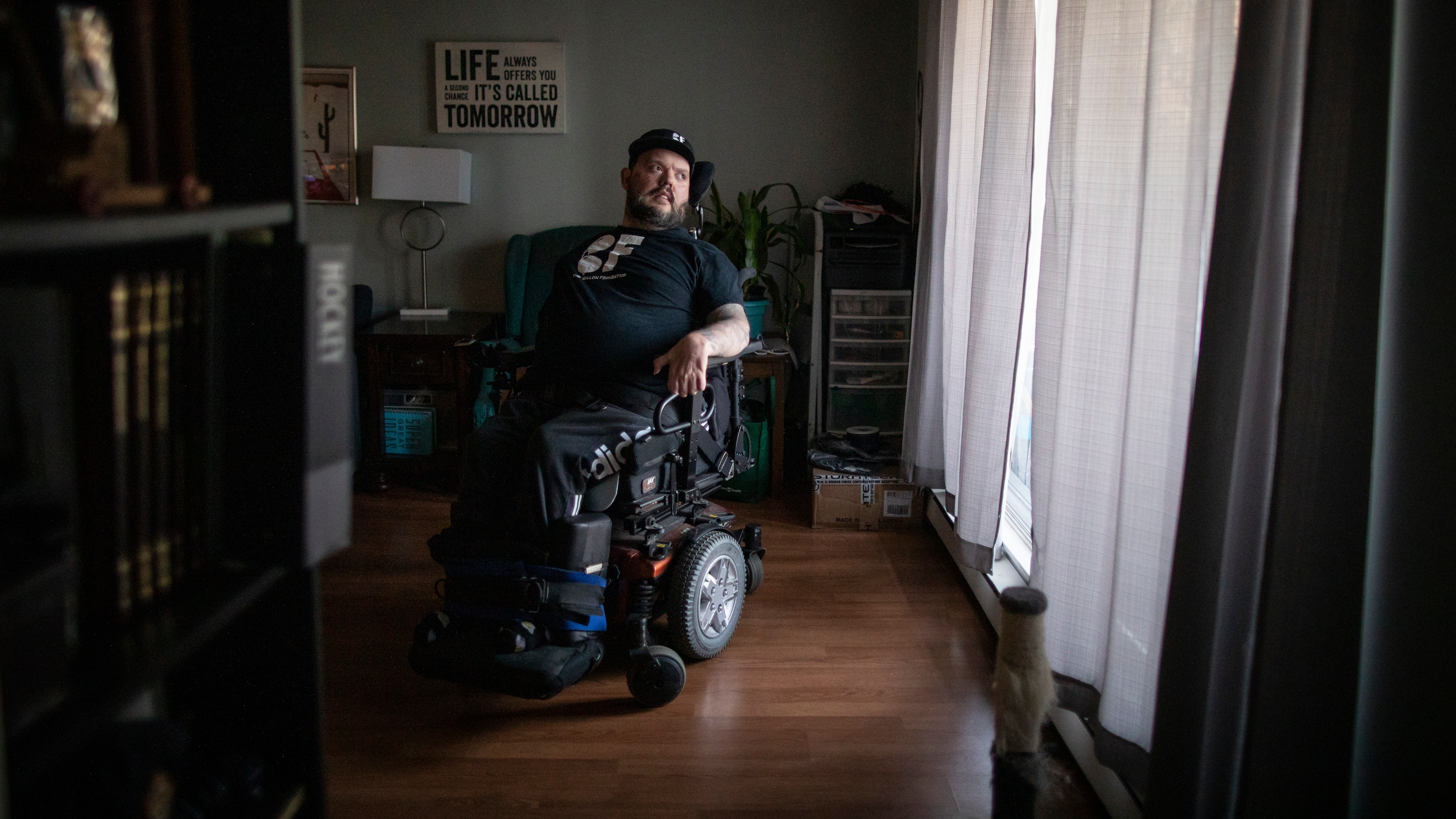‘Shocking’: Air Canada CEO blasted over accessibility services at House committee

Lawmakers took Air Canada’s CEO to task on Monday over “shocking” and “scandalous” failures to accommodate passengers living with disabilities.
At a House of Commons committee hearing on services for Canadians with disabilities, chief executive Michael Rousseau faced a barrage of questions over reports of passenger mistreatment during the past year.
Vice-chair Tracy Gray cited several “shocking” incidents from 2023: “An Air Canada passenger had a lift fall on her head and her ventilator was disconnected; Air Canada leaving Canada’s own chief accessibility officer’s wheelchair behind on a cross-Canada flight … and a man was dropped and injured when Air Canada staff didn’t use a lift as requested.”
In August, a man with spastic cerebral palsy was forced to drag himself off an airplane due to a lack of help, a situation that Bloc Quebecois MP Louise Chabot called “scandalous.”
Asked how Air Canada would improve its services, Rousseau replied, “We do make mistakes.” But he pointed to an expedited accessibility scheme announced in November, along with new measures to improve the travel experience for hundreds of thousands of passengers living with a disability.
Last week, the carrier formed an advisory committee made up of customers with disabilities and laid out a program where a lanyard worn by travellers indicates to staff they may need assistance.
Ryan Lachance and his caregiver, Emma Proulx, say Air Canada crew need better training to keep people with disabilities safe.
“The vast majority of customers requesting accessibility help from Air Canada are having a good experience. There are exceptions. We take responsibility for those exceptions,” Rousseau said.
Last fall, he apologized for the airline’s failures.
NDP disability inclusion critic Bonita Zarrillo suggested the shortcomings run deeper than occasional missteps, saying Air Canada’s corporate culture and a lack of federal enforcement are to blame for mistreatment, even after regulatory reforms over the past five years.
“I just don’t think that it should take egregious and gross negligence stories and the harm to persons with disabilities, whether to their physical being or to their dignity. The violation of their human rights should not be the spearhead,” she said in an interview ahead of the hearing.
Air Canada has apologized to a B.C. man after staff told him he would need to get to the front of the plane without any assistance. The airline has also admitted it violated Canadian disability legislation. Rodney Hodgins hopes the situation will lead to systemic change.
Complaints have come from various corners.
In December, the Canadian Paralympic Committee, along with some para athletes, demanded better transport to and from competitions abroad.
The call followed repeated complaints from Paralympic athletes of damaged or broken equipment, on top of delayed flights for competitors from Canada trying to reach the Parapan American Games in Chile in November.
Last month, Air Canada appealed a decision by the country’s transport regulator that seeks to boost accessibility for travellers living with a disability. If successful, the move would overturn a requirement to fully accommodate passengers whose wheelchairs are too large to move into airplane cargo holds.
Under its three-year accessibility plan, Air Canada has pledged to roll out measures that range from establishing a customer accessibility director to consistently boarding passengers who request lift assistance first.
The Toronto-based company also aims to implement annual, recurrent training in accessibility — such as how to use an eagle lift — for its 10,000-odd airport employees. It further plans to include mobility aids in an app that can track baggage.
Parliamentarians and accessibility advocates have pointed to holes in the Accessible Canada Act they say allow problems to persist in areas ranging from consultation to assistance protocols.
Heather Walkus, who heads the Council of Canadians with Disabilities, has highlighted a lack of detail on how to train staff. She has also cited a rule requiring federally regulated companies to involve people with disabilities in developing policies, programs and services — a “regulation you could drive a truck through.”
“You could send the administrator down to Tim Hortons and talk to someone in a wheelchair and you’ve consulted with the disability community. It’s a check-off,” she told The Canadian Press in November. The group she heads was not contacted by Air Canada on its new accessibility blueprint, she said.





